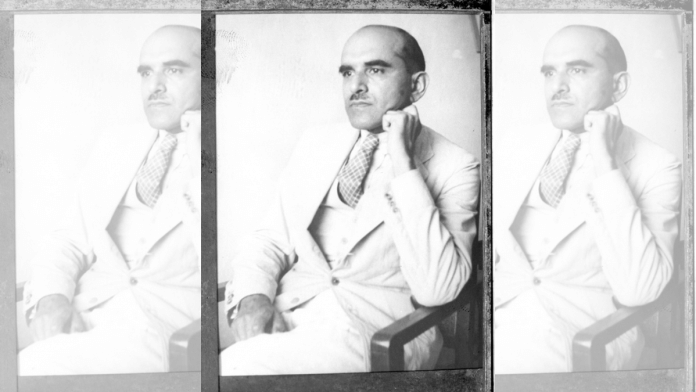When modern scholarship in Ismaili studies was initiated in India in the 1930s, significant manuscripts were preserved by the Ismaili Bohra community to carry on the academic legacy. Among those scholars was Asaf Ali Asghar Fyzee, an Islamic scholar, jurist, author, educator, and diplomat who based his studies and work on inherited manuscripts. He was a pioneer, who, transitioning into modernity, brought before the world the very existence of the independent Ismaili school of jurisprudence.
His work continues to influence modern debates, and his books are variously referred to in news pieces and articles pertaining to the Muslim personal law. Waqf Fyzee also advocated for gender justice and sought to reform sharia law to maintain the spirit of Islam. For Fyzee, ‘modernised’ sharia could remain faithful to Islam and yet suit contemporary times.
Fyzee belonged to the most learned and known Sulaymani Tayyibi family of the Ismaili Bohra community. He is considered one of the trailblazers of modern Ismaili studies. On his death, Belgian-born Iranian-British Islamic scholar Farhad Daftary wrote that it was the loss of an “eminent Indian Islamologist and a leading specialist in Islamic law”.
In an article by Scroll, author Danish Khan mentions that in the late 1950s, the British were looking for distinguished and influential Muslims in India to mediate between them and the Gulf countries. They zeroed upon Fyzee due to his vast understanding of Islam and the administrative aptitude that could make him a good diplomat.
‘Modernising’ sharia
Fyzee’s literary works revolved around the rediscovery and reinterpretation of Islamic jurisprudence — a new, ‘Protestant’ Islam, which he wanted to call “Liberal Islam”. In The Reinterpretation of Islam, he explores sharia between the nuances of law — a concept straddled between State control and religion. He wrote that he wanted to read and understand the Quran from the perspective of the Arabs of Prophet Muhammad’s time to reinterpret it into modern-day understanding. In a nutshell, he sought the restructuring of Islamic theology to suit the contemporary world.
Perhaps this is why Fyzee’s work and his advocacy of reinterpretation find presence in academic circles even today — especially in articles on reforms in the Muslim personal law. His interpretations and views find wide relevance — The Reform of Muslim Personal Law in India was written in 1970. Here, he sought the need for a reformation in the Muslim personal law and argued that sharia’s foundation lies on the principle of justice. Failure of any Islamic law to observe it is an infringement of sharia itself. For Fyzee, some laws that are part of the Muslim personal law violate the essence of justice, especially those regarding Muslim women.
Also read: Pakistan wants an Afghanistan acceptable to the West — Islam plus democracy
A life of diplomacy, academics, politics
Asaf Ali Asghar Fyzee was born in Matheran, Maharashtra. He received primary education in Bombay and completed a course in law (LLB) from St. Xavier’s College. In 1922, he relocated to England for higher education and studied at St John’s College, Cambridge and secured first class in two Asian languages — Arabic and Persian. He studied the languages under renowned scholar Reynold A. Nicholson.
Three years later, he became a barrister-at-law and started his legal career, practising in the Bombay High Court till 1938. After his stint as an advocate, Fyzee joined the Government Law College in Mumbai as the principal and Perry Professor of Jurisprudence.
Ali Asghar Fyzee had also briefly served as the vice-chancellor at the University of Jammu and Kashmir from 1957 to 1960. The scholar and jurist didn’t exempt himself from active politics either, being the second Indian ambassador to Egypt from 1949 to 1952. In 1962, he was awarded India’s third-highest civilian award, the Padma Bhushan.
As a name that was widely recognised in literary circles, Fyzee was invited as a visiting professor not just in Indian educational institutes but also in universities across the United States and Canada. Alongside his wide-ranging stints, he continued to serve as a joint editor of the Bombay Branch of the Royal Asiatic Society, and until 1980, he was a part of the Islamic Culture’s editorial board. Throughout his life, he made several contributions in terms of Ismaili literature and focused on modernising Islam.
In A Modern Approach to Islam, Fyzee focuses on the rediscovery of the original Islamic philosophy and the reinterpretation of the Islamic jurisprudence, advocating modern reforms in the laws but sticking to Islam’s original essence. Fyzee writes in Outlines of Muhammadan Law that to understand Islamic law, one has to be familiar with its historic and cultural background. As a beginner’s guide, the book covers topics such as the origin of Islamic law, inheritance, and Islamic trusts (waqf), among others. With a statement that ensures his relevance through the times, he says, “What is morally beautiful, that must be done; and what is morally ugly must not be done. That is law or Shariat, and nothing else can be law.”
(Edited by Humra Laeeq)






